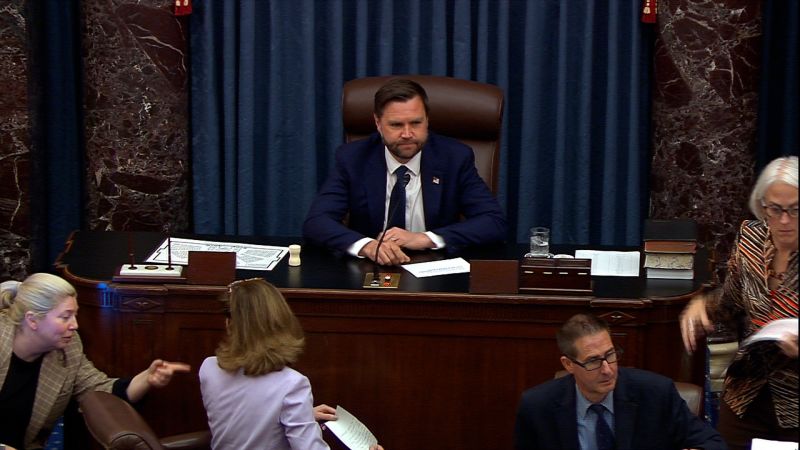In a dramatic late-night session, the Senate passed President Donald Trump’s comprehensive domestic policy bill after hours of intense debate and negotiation. The bill, which has been a cornerstone of Trump’s legislative agenda, now moves to the House of Representatives for further consideration.
The passage of the bill marks a significant legislative victory for the Trump administration, which has been pushing for sweeping changes across various sectors, including healthcare, education, and infrastructure. The bill’s approval came after a marathon voting session that extended into the early hours of the morning, reflecting the contentious nature of the proposed legislation.
Key Provisions and Impact
The bill encompasses a wide range of policy changes aimed at reshaping the domestic landscape. Among its key provisions are major reforms to the healthcare system, increased funding for infrastructure projects, and significant changes to the educational framework. Supporters argue that these measures will stimulate economic growth and improve public services.
However, critics have raised concerns about the potential impacts on the federal deficit and the long-term sustainability of the proposed changes. The bill’s passage in the Senate was achieved with a narrow margin, highlighting the deep divisions within the legislative body.
Historical Context and Legislative Challenges
This development follows a series of legislative hurdles that the Trump administration has faced in its efforts to enact its domestic policy agenda. Historically, similar sweeping reforms have encountered significant opposition, often resulting in prolonged debates and revisions.
According to political analysts, the current bill draws parallels with past legislative efforts, such as the Affordable Care Act and the New Deal, both of which faced considerable challenges before eventual implementation. The current political climate, characterized by partisan divisions, further complicates the legislative process.
Expert Opinions and Public Reaction
Experts remain divided on the potential outcomes of the bill. Some economists argue that the proposed infrastructure investments could lead to job creation and economic revitalization, while others caution against the risk of increased national debt.
“The bill represents a bold vision for America’s future, but it also carries significant financial risks,” said Dr. Emily Thompson, a professor of economics at Harvard University.
Public reaction has been equally mixed, with supporters praising the administration’s commitment to domestic reform and opponents expressing concerns over the bill’s long-term implications.
Next Steps and Future Implications
As the bill moves to the House of Representatives, it faces an uncertain future. House leaders have indicated that they will closely examine the proposed measures, with potential amendments expected to address some of the concerns raised by critics.
The outcome of the House vote will be crucial in determining the bill’s fate. If passed, it could lead to significant changes in the domestic policy landscape, shaping the nation’s future for years to come.
Meanwhile, the political ramifications of the bill’s passage in the Senate are likely to influence upcoming electoral campaigns, with both parties using the issue to galvanize their respective bases.
As the legislative process unfolds, stakeholders across the country will be watching closely, aware that the decisions made in the coming weeks could have far-reaching consequences for the nation.
 Former Congressman Warns Against USAID Cuts: A Gift to America’s Adversaries
Former Congressman Warns Against USAID Cuts: A Gift to America’s Adversaries Ancient Reefs Uncover Human Impact on Caribbean Marine Life
Ancient Reefs Uncover Human Impact on Caribbean Marine Life AI Breakthrough Targets Drug Resistance in Prostate Cancer Treatment
AI Breakthrough Targets Drug Resistance in Prostate Cancer Treatment UC Berkeley’s Open-Source Robot Revolutionizes Accessibility in Robotics
UC Berkeley’s Open-Source Robot Revolutionizes Accessibility in Robotics Wimbledon Shock: No. 3 Seeds Pegula and Zverev Fall in First Round Upsets
Wimbledon Shock: No. 3 Seeds Pegula and Zverev Fall in First Round Upsets